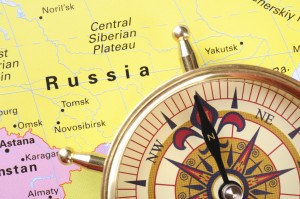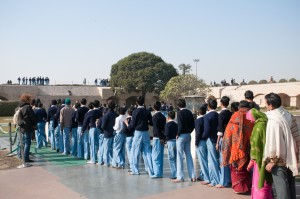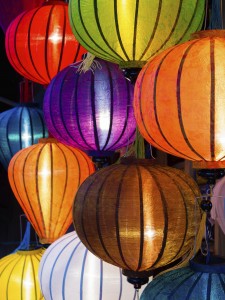Though the busiest holiday season has come to an end here in the U.S., many countries celebrate their major holidays throughout the rest of the year – some of which could impact your travels if you don’t plan accordingly. Our first post of this series focused on the official holidays observed in China, UAE and Brazil—now we’ll take a look at the major holidays celebrated in Russia, India and Japan to help you schedule and better prepare for your business travels to these regions.
Russia – Russia is a popular destination for business travelers – in fact, the GBTA’s Global Business Travel Spending Outlook 2011-2015 Study forecasted that business travel spend in Russia will increase by 7.1%. If you’re one of the many professionals planning a trip there, keep the country’s official holiday calendar in mind before you book:
- What: New Year Holiday Week/ When: January 1st – 9th – The New Year is the most important holiday on the Russian calendar. In 2010, Russian Prime Minister Dmitry Medevdev signed a decree that added additional holidays to the Russian calendar extending the country’s New Year observance to 10 days (counting New Years Eve). The New Year celebration in Russia contains many elements similar to those found in Christmas traditions in the West, and offices are typically closed for more than a week so employees can spend time with their families.
- What: Defender of the Fatherland Day/ When: February 23rd – Also known as The Army Day, or Men’s Day, Fatherland Day is a tribute to every generation of Russian soldiers. Government offices, embassies and some shops are closed in observance of the holiday.
- What: International Women’s Day/ When: March 8th – International Women’s Day marks the date that Russian women first gained the right to vote: March 8, 1917. Since most Russians don’t have to work on International Women’s Day, it is usually celebrated in offices before or after the actual holiday. In companies and organizations, all women receive flowers and small memorable gifts from their male co-workers and, sometimes, from their employers.
- What: Day of Spring and Labor/ When: May 1st – Spring and Labor Day is a public holiday in Russia. Most banks, public buildings and educational institutions are closed on this day. If May 1st falls on a weekend, the public holiday usually moves to the following Monday. Public transport routes are typically crowded in cities like Moscow, which last year, saw peaceful rallies and marches celebrating the country’s current economical state and leadership.
- What: Victory Day/ When: May 9th (observed Monday, May 11th) –Victory Day marks Germany’s surrender to the Soviet Union in 1945. Public offices, schools and most businesses are closed for the celebrations, which include nation-wide parades and festivities honoring Russian veterans. If you are in Russia during this time for business, keep in mind that there may be changes in public transport routes and schedules due to parades and street performances.
- What: Russia Day/ When: June 12th – Russia Day commemorates the day Russian parliament formally declared Russian sovereignty from the USSR (June 12th, 1990), which declared complete state independence. Keep in mind that public transportation schedules and routes may shift depending on the events taking place in major Russian cities. Etiquette Tip: It’s best to tread lightly when discussing this holiday with your Russian business associates – many people still sees the holiday as nothing more than a day off and are opposed to celebrating due to their personal afflictions with the dissolution of the Soviet Union.
- What: Unity Day/ When: November 4th – Russia’s newest holiday, created in 2004, is Unity Day, which celebrates the liberation of Moscow from Polish troops in 1612 and the subsequent end of the “time of troubles.” Currently, state offices, banks and schools are closed on the day. Unity Day is controversial (even more so than Russia Day), and Russian nationalists remain divided on political agendas associated with the holiday. If you do happen to be in Russia on November 4th, we recommend avoiding large crowds and public demonstrations.
India – India is projected to have one of the fastest-growing economies in the world, making it a popular destination for international business affairs. If you’re wondering when the best time of year would be to schedule your trip to India, first consider the national public holidays the country observes:
- What: Republic Day/ When: January 26th – Republic Day is an important national holiday that commemorates the establishment of the Constitution of India. The day is marked with parades throughout the country celebrating the cultural unity of India. If your travels bring you to Delhi, keep in mind that Republic Day festivities last for a week there, making for an extremely crowded capital city.
- What: Independence Day/ August 15th – Marking the date of India’s independence from the British Empire in 1947, this national holiday is observed in all Indian states and union territories with flag-hoisting ceremonies, parades and cultural events.
- What: Mahatma Gandhi’s Birthday/ October 2nd – Every year on
 October 2nd, all Indian states and territories honor Mahatma Gandhi’s birthday with prayer services. New Delhi is especially crowded with locals, who attend services at Raj Ghat, Gandhi’s memorial in New Delhi where he was cremated. Celebrations on the day also include commemorative ceremonies in various cities by colleges, local government institutions and socio-political institutions.*Only the secular holidays of Republic Day, Independence Day and Mahatma Gandhi’s Birthday are observed nationally. Other public holidays in India are observed on a strictly regional basis. To view a full list of public holidays celebrated in the region you’re traveling to, click
October 2nd, all Indian states and territories honor Mahatma Gandhi’s birthday with prayer services. New Delhi is especially crowded with locals, who attend services at Raj Ghat, Gandhi’s memorial in New Delhi where he was cremated. Celebrations on the day also include commemorative ceremonies in various cities by colleges, local government institutions and socio-political institutions.*Only the secular holidays of Republic Day, Independence Day and Mahatma Gandhi’s Birthday are observed nationally. Other public holidays in India are observed on a strictly regional basis. To view a full list of public holidays celebrated in the region you’re traveling to, click
Japan – Tokyo has recently resumed its position as a hot spot for business travel, so don’t be too surprised if your overseas business lands you in Japan in the near future.
- What: Coming of Age Day/ When: January 12th– Coming of Age Day is a national holiday to encourage those who have newly entered adulthood (age 20) to become self-reliant members of society. Local governments usually have a ceremony known as a seijin shiki (adult ceremony) to honor the “new adults”.
- What: National Foundation Day/ When: February 11th – National Foundation Day is an official government holiday in which the entire nation honors the nation’s founding.
- What: Vernal Equinox Day/ When: March 21st – A national public holiday in Japan, Vernal Equinox Day is a day for the Japanese to celebrate spring’s arrival and commune with nature. Common traditions on this holiday include visiting loved one’s graves and holding family reunions.
- What: Golden Week/ When: April 29th & May 3rd-5th – The Golden Week is a collection of four national holidays within seven days. In combination with well-placed weekends, the Golden Week becomes one of Japan’s busiest holiday seasons. Beginning with Showa Day on April 29th, the whole country prepares for its annual Golden Week traditions. The other holidays included in Golden Week are Constitution Memorial Day (May 3rd), Greenery Day (May 4th), and Children’s Day (May 5th). Keep in mind that train stations, airports and major Japanese cities get extremely crowded during this week due to the celebrations. We recommend scheduling your trip to Japan before or after Golden Week to avoid the crowds – however, if you must travel during that time, it’s best to book your hotel and airfare far in advance to secure availability. Rates, on the other hand, are typically always higher during this peak travel season.
- What: Marine Day/ When: July 20th – This national holiday was established in 1995 (and first held in 1996) as a day to give thanks to the ocean reflect on the importance of the sea to the maritime nation that is Japan. All banks and government offices are closed in observance.
- What: Respect for the Aged Day/ When: September 21st – This national holiday was established in 1966 as a day to respect the elderly and celebrate long life. To honor the elders, many communities throw parties and offer special gifts to bring even more longevity to their lives.
- What: Autumnal Equinox Day/ When: September 23rd – Established as a national holiday in 1945, the Japanese use Autumnal Equinox Day to pay respects to deceased family members, visit family graves and hold family reunions in honor of those who have passed.
- What: Health and Sports Day/ When: October 12th – This holiday was first observed in 1966 and the date marked the opening day of the Tokyo Olympics in 1964. Health and Sports Day was appointed as a major national holiday to promote the adoption of a healthy and active lifestyle throughout the country. In celebration of this holiday, many Japanese schools, business and towns hold special events which include sports activities.
- What: Culture Day/ When: November 3rd – Culture Day, otherwise known as “Bunka no hi,” is a day the country honors its traditional Japanese culture and promotes the love of freedom and peace. As part of the celebration of Culture Day, the Order of Culture Awards Ceremony takes place at the Imperial Palace in Tokyo – keep this in mind if you’re in the area during this time, as the city can become very crowded with tourists and locals alike.
- What: Labor Thanksgiving Day/ When: November 23rd (or the following Monday if it falls on a Sunday)– Labor Thanksgiving Day was established in 1948 as an occasion for praising labor, celebrating production and giving one another thanks. A number of major events are held on this day. One such event is a labor festival held every year in the city of Nagano. Local labor organizations sponsor this event to encourage people to think about issues affecting peace, human rights, and the environment.
- What: The Emperor’s Birthday/ When: December 23rd – Japan commemorates the birthday of its reigning emperor each year, and the nation’s current emperor is honored on December 23rd. However, if the emperor changes, the national holiday will change to the birthday of the new emperor.
Safe Travels!


